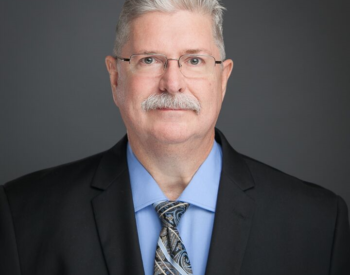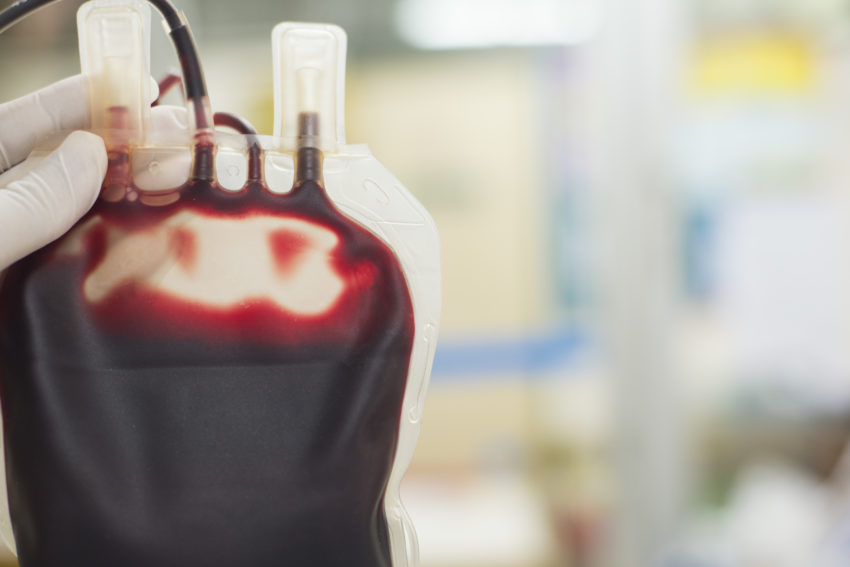Media contact: Susan Anasagasti, anasagasti@uthscsa.edu, (305) 903-8829
SAN ANTONIO (April 13, 2020) — UT Health San Antonio played a major research role in the FDA’s recent approval of a new process that nearly triples the five-day shelf life of blood platelets, commonly used for treating trauma patients.
The breakthrough is expected to increase the availability of platelets, a key blood component that is often in high demand across the state of Texas.

“This is a game changer,” said Donald Jenkins, M.D., professor of surgery and a member of the Military Health Institute at UT Health San Antonio. “The FDA hasn’t made changes in the way blood is stored in decades.”
The U.S. Food and Drug Administration recently granted the South Texas Blood & Tissue Center (STBTC) as the first civilian blood center in the United States to receive a supplemental approval to produce cold-stored platelets. Cold-stored platelets are for use in treating actively bleeding patients through day 14 of storage, when conventional platelet products are unavailable, or their use is not practical.
Researchers at UT Health San Antonio provided the key data needed to receive that license, said Dr. Jenkins, also an emergency room surgeon at University Hospital.
The effort is the result of a long-term partnership among military collaborators, researchers and physicians meant to improve the response to trauma situations, including hemorrhaging patients in rural hospitals.
“All blood products are a precious commodity in saving lives. We began looking into what it would take to extend the shelf life of blood products while I was in the military and later as a faculty member at The Mayo Clinic in Rochester, Minn.,” Dr. Jenkins said. He continued this research when he joined UT Health San Antonio and its major clinical partner, University Health System, in 2006.
Perfect partnership brings FDA approval
What resulted was a perfect partnership at the right time. “The South Texas Blood & Tissue Center couldn’t have received the FDA approval for the new process without us and we couldn’t have done this without them,” he said.
Refrigerating platelets extends usefulness
Traditionally, platelets have been stored at room temperature for up to five days, with the first two days devoted to testing for bacteria and transporting the blood to area hospitals.
The new process involves refrigerating platelets within two hours of collection, making the blood safely available to patients for up to 14 days. Not only are the platelets then available for longer, they also can be safely transported to places where they aren’t available now, including hospitals in rural areas.
“We found that even if we refrigerated platelets and used them on the fifth day, they still have better function than if they were kept at room temperature,” Dr. Jenkins said. “And, they will be safer because bacteria shouldn’t be growing.”
A team of blood experts, including Dr. Jenkins and STBTC Chief Operating Officer Elizabeth Waltman, traveled to Washington, D.C., last year and presented alarming statistics to the FDA and lobbied them to change the way platelets are stored. Dr. Jenkins said that every four minutes a woman dies during childbirth. Half of those deaths are related to bleeding.
“Some women delivering babies in Del Rio and other border cities are having peripartum hemorrhage,” he said. “There are 20 hospitals in South Texas and only two of those have platelets. Having platelets available to give to patients throughout South Texas would be amazing.”
# # #
The Long School of Medicine at The University of Texas Health Science Center at San Antonio is named for Texas philanthropists Joe R. and Teresa Lozano Long. The school is the largest educator of physicians in South Texas, many of whom remain in San Antonio and the region to practice medicine. The school teaches more than 900 students and trains 800 residents each year. As a beacon of multicultural sensitivity, the school annually exceeds the national medical school average of Hispanic students enrolled. The school’s clinical practice is the largest multidisciplinary medical group in South Texas with 850 physicians in more than 100 specialties. The school has a highly productive research enterprise where world leaders in Alzheimer’s disease, diabetes, cancer, aging, heart disease, kidney disease and many other fields are translating molecular discoveries into new therapies. The Long School of Medicine is home to a National Cancer Institute-designated cancer center known for prolific clinical trials and drug development programs, as well as a world-renowned center for aging and related diseases.
The University of Texas Health Science Center at San Antonio, dba UT Health San Antonio, is one of the country’s leading health sciences universities and is designated as a Hispanic-Serving Institution by the U.S. Department of Education. With missions of teaching, research, patient care and community engagement, its schools of medicine, nursing, dentistry, health professions and graduate biomedical sciences have graduated more than 37,000 alumni who are leading change, advancing their fields and renewing hope for patients and their families throughout South Texas and the world. To learn about the many ways “We make lives better®,” visit www.uthscsa.edu


